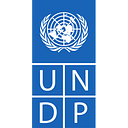10 years Karaburun-Sazan National Marine Park
A story of sustainable tourism development and biodiversity conservation
Deep cobalt color of the pristine coastline, ruins of sunken Greek, Roman and World War II ships, rich fauna with marine algae, sponges, mollusks, crustaceans, red coral, reptiles, steep cliffs, breathtaking underwater landscape, unconventional caves and canyons, Posidonia meadows.
This is the Karaburun-Sazan National Marine Park — an ecosystem rich in environmental, natural, cultural, historical and archaeological values.
Lying along the coastline of the magical Karaburuni Peninsula and “embracing” the mystical Sazani Island, this jewel of Albania has become a top tourist destination in the Mediterranean.
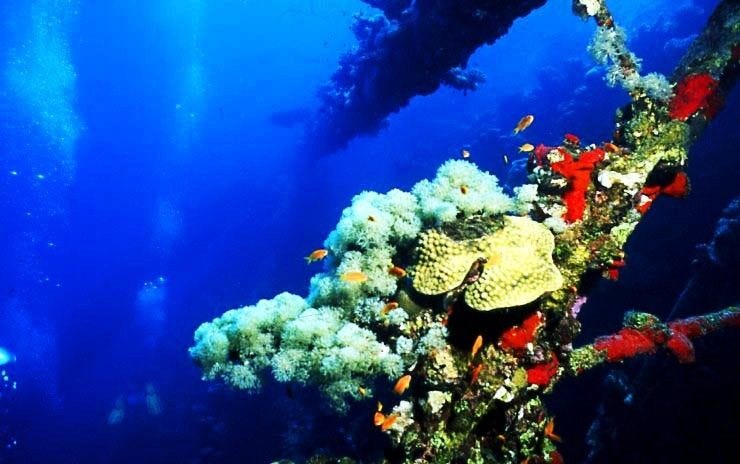

From a fortified military base during the Communist Era to the first and only National Marine Park of Albania
How did we get here?
Backed by UNDP, the Government of Albania took a historic decision on April 28, 2010, establishing Karaburun-Sazan as the first National Marine Park of Albania. The Park covers a marine area stretching 1.9 km along the coastlines of Karaburun Peninsula and Sazan Island near the Bay of Vlora. The Marine Park is 16 kilometers long, covering 12,428 ha of surface in total.
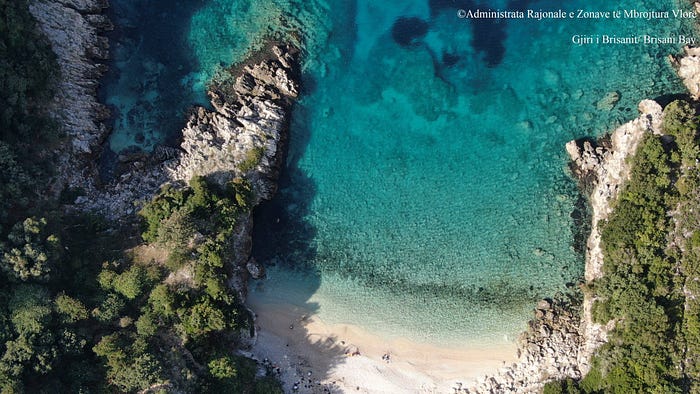
With funding from the Global Environmental Facility (GEF) and the Italian Government, through the Italian Agency for Development Cooperation (AICS Tirana),the UNDP in partnership with the Ministry of Tourism and Environment joined hands to implement the project “Improvement, coverage and effective management of Marine and Coastal Protected Areas,” designed to secure the long-term protection of Albania’s unique coastal and marine biodiversity, through a number of sustainable interventions.
Engagement of the local communities in this endeavor has been instrumental from the get-go. The process was accompanied by a comprehensive public awareness and advocacy campaign targeting students, civil society, and local government to advocate for the need to conserve the marine coastal protected area and promote the biodiversity and tourism values hosted in this genuine ecosystem.
Since then, UNDP continued to mobilize national and international partners and expertise to strengthen the Park’s management and develop a vision for the attraction and the services it provides — seeing that it becomes a major eco-tourism and development hub.
Through the years, the first National Marine Protected Area in Albania has attracted international attention. In 2015, the Park was proclaimed as a Specially Protected Areas of Mediterranean Importance by the Barcelona Convention. It is now part of the Network of Marine Protected Areas managers in the Mediterranean (MedPAN).
The values that make our efforts worth it
Following the park’s trails — be them marine or terrestrial — doesn’t just lead visitors to naturally bestowed beauties, such as the high shores and small bays of the Karaburun Peninsula, the 30-meters-deep Cave of Haxhi Ali, or the virgin beaches of Grama and Dafina. More than that, these are historic trails, helping people connect with places evoking the area’s millennial history, starting from antiquity, until the more recent 20th century history.

The ancient writings found on the wall of Grama beach, historians claim, once belonged to the temple of Pellazg tribes, while Sazani, Albania’s largest island, was called Sason in antiquity. The rocky block’s steep shores that have now become popular spots for diving once saw civilization unfold — offering about 75,000 tourists who visited the Karaburun-Sazan National Park during 2019 not just beauty and adventure, but also a journey down history’s lane.
As for those who are still unaware or unconvinced of all the places to be explored inside the Park, its official website (www.karaburunsazanmpa.com) offers a good virtual starting point.
A management in motion
Maintaining healthy, productive and resilient ecosystems which allow Albania’s marine biodiversity to recover, while also providing communities with required services, is essential for the Park’s effective management.

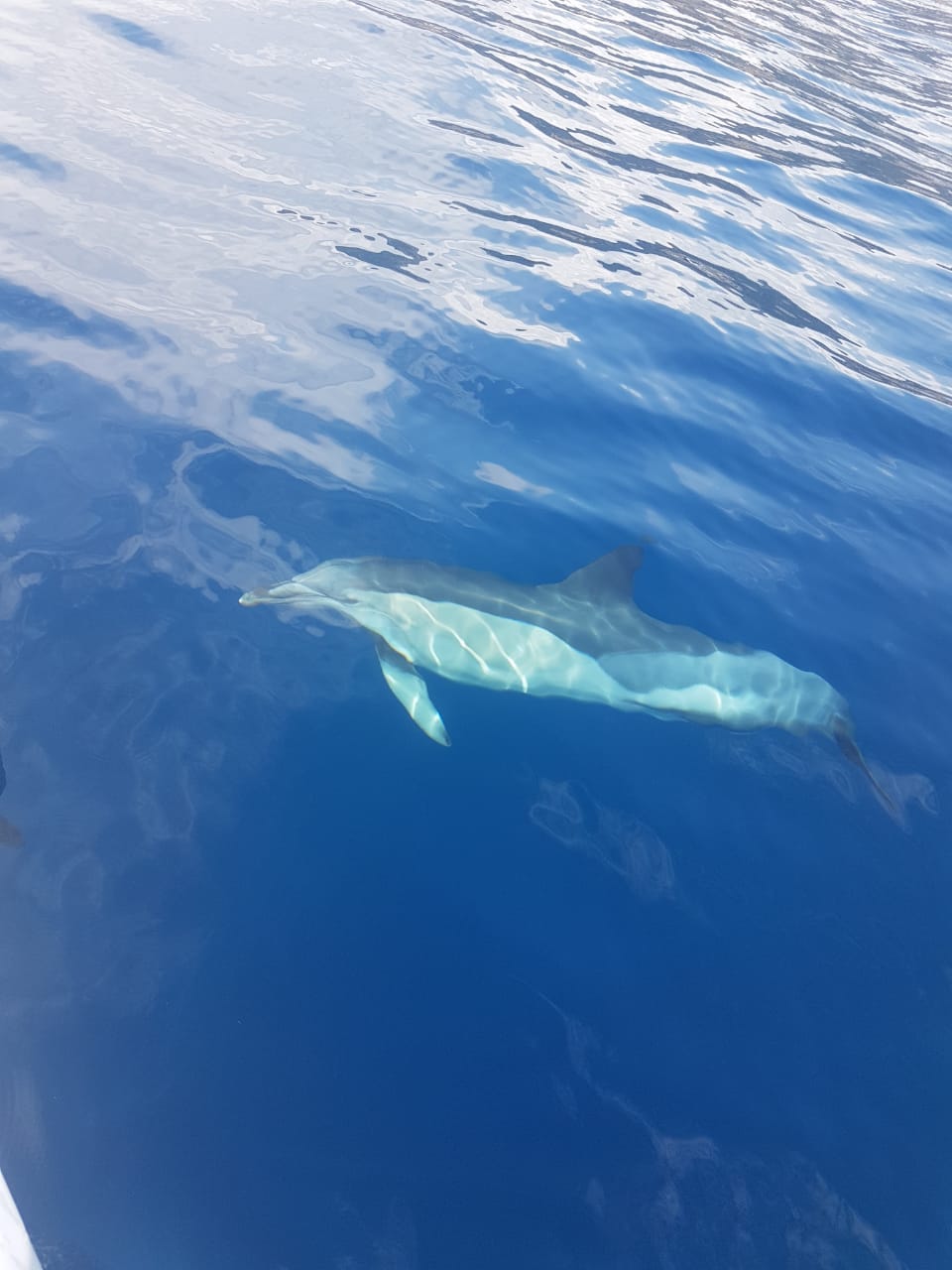
Since 2017, with the support of the Italian Government through AICS (Italian Agency for Cooperation and Development), the UNDP has been closely collaborating with the Ministry of Tourism and Environment and the National Agency for Protected Areas to effectively manage the Marine Park.
The Park’s Management Plan is the main tool for biodiversity conservation, for raising awareness and improving education, for cultural heritage and landscape maintenance, for support towards local communities and for sustainable use of natural resources.
The Park’s patrolling and monitoring capacities — in turn the health of the ecosystem itself — is also achieved by the anchoring and signaling buoys which have been installed and deployed in the park’s borders.

The fruits of those actions are visible in many interventions — such is the Sea Turtle Rehabilitation Center, located close to the Visitor Center in Radhima and assisting in the treatment and subsequent release of a significant number of sea turtles.
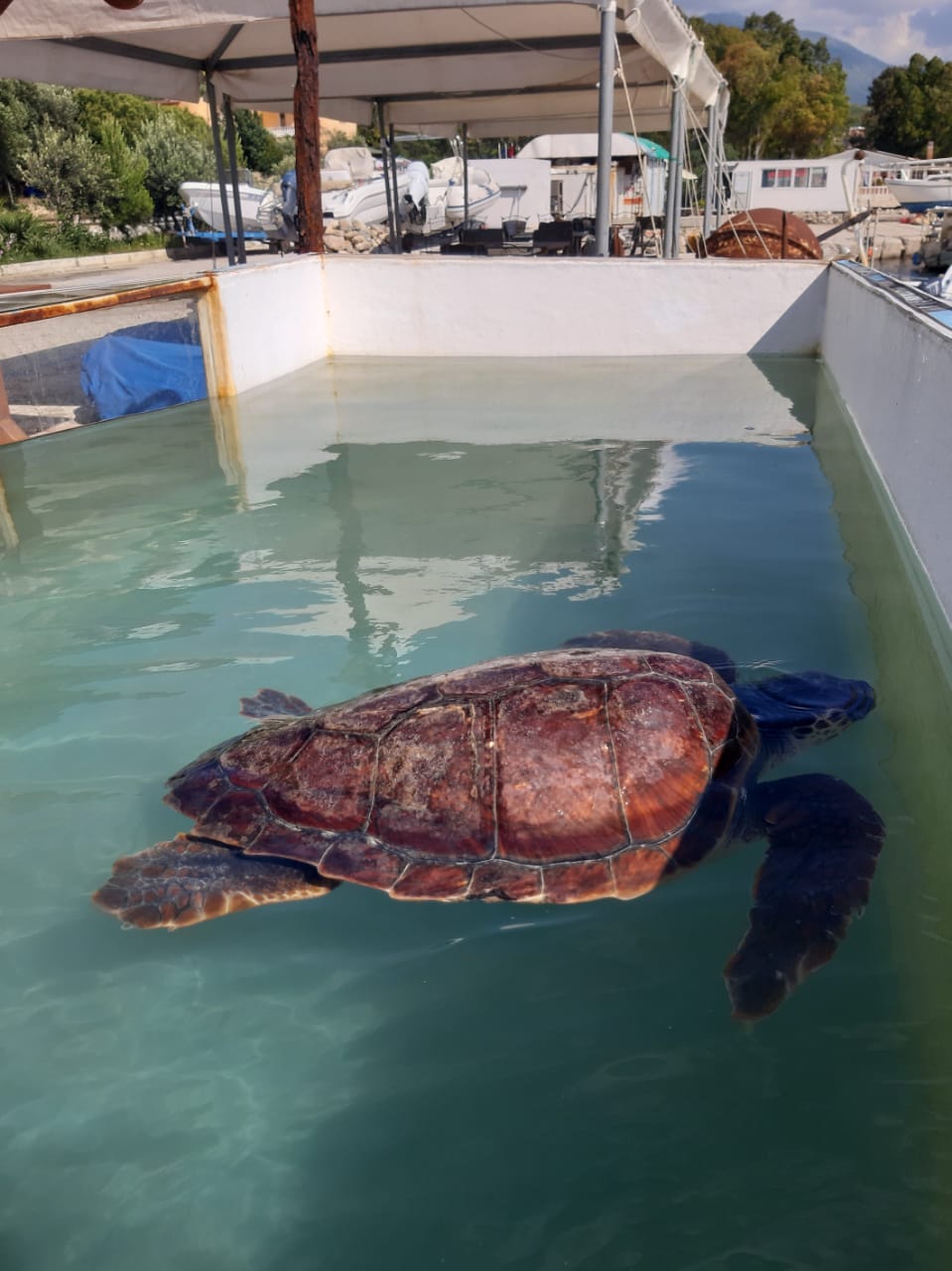

Radhima’s Visitor Center benefits from the assistance of youth from the area and students who in addition to learning about marine biodiversity firsthand, also help to inform tourists, promote the Marine Park’s attractions and collect and register tourism data.
Local CBOs and NGOs have also participated in a range of actions and activities aiming to highlight the park’s vitality in the bigger picture of Albania’s complex biodiversity.
Naturally this stunning beauty attracts people from all over Albania and abroad to the Vlora Bay. Number of tourists has boomed during the last years. Restaurants, bars and hotels have seen winds of opportunities and have sprung up all over the place. An emerging hazard was the improper disposal of cooking oils primarily generated by the restaurants. With UNDP support, a recycling initiative worked to keep used cooking oil (UCO) out of the sea.
Restaurants, hotels and businesses along Vlora Bay were encouraged to recycle their used cooking oil and plastic bottles. As an incentive, restaurants were given one liter of cooking oil for every 15 liters they recycle.
This initiative brought together around 42 economic operators and shipped a total of 4,200 kg UCO to specialized recycling facilities, making it one of the best integrated management actions aiming to mitigate human impact into the ecosystem.
The cleanup of the seabed within the area of Karaburuni-Sazani MPA - another significant activity, which extended the improvement of the waste management practices — namely, 54 old truck tires were collected from the seabed in addition to other solid waste and disposed in Vlora Municipality designated sites.

To follow the implementation of all management plans, the Management Committee of Marine Park Karaburun — Sazan was established in March 2019 as an inter-sectorial body, based on the law on Protected Areas.
Holidays in COVID-19 Times
We call on everyone to stay in Albania this summer. And when you go to Vlora, consider visiting the stunning Karaburun -Sazan Marine Park. For guidance do stop by the Visitor Center in Radhima. You will find resourceful people who will guide you about places to visit. And not only because they are doing their job, but because they are in love with the Marine Park. It is beyond duty.
